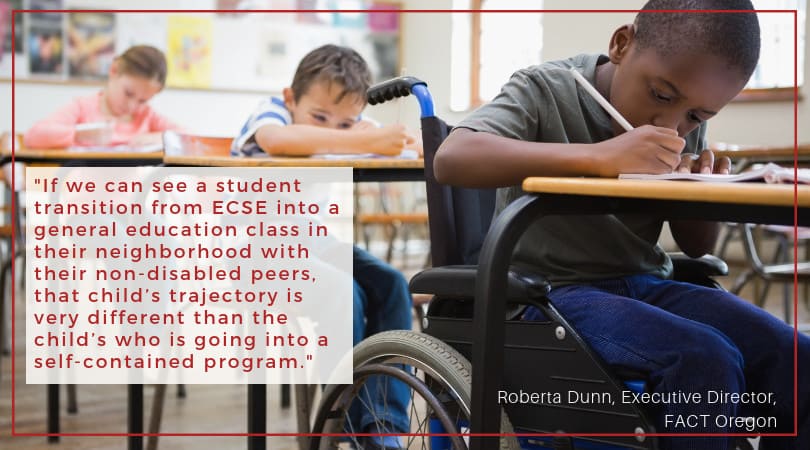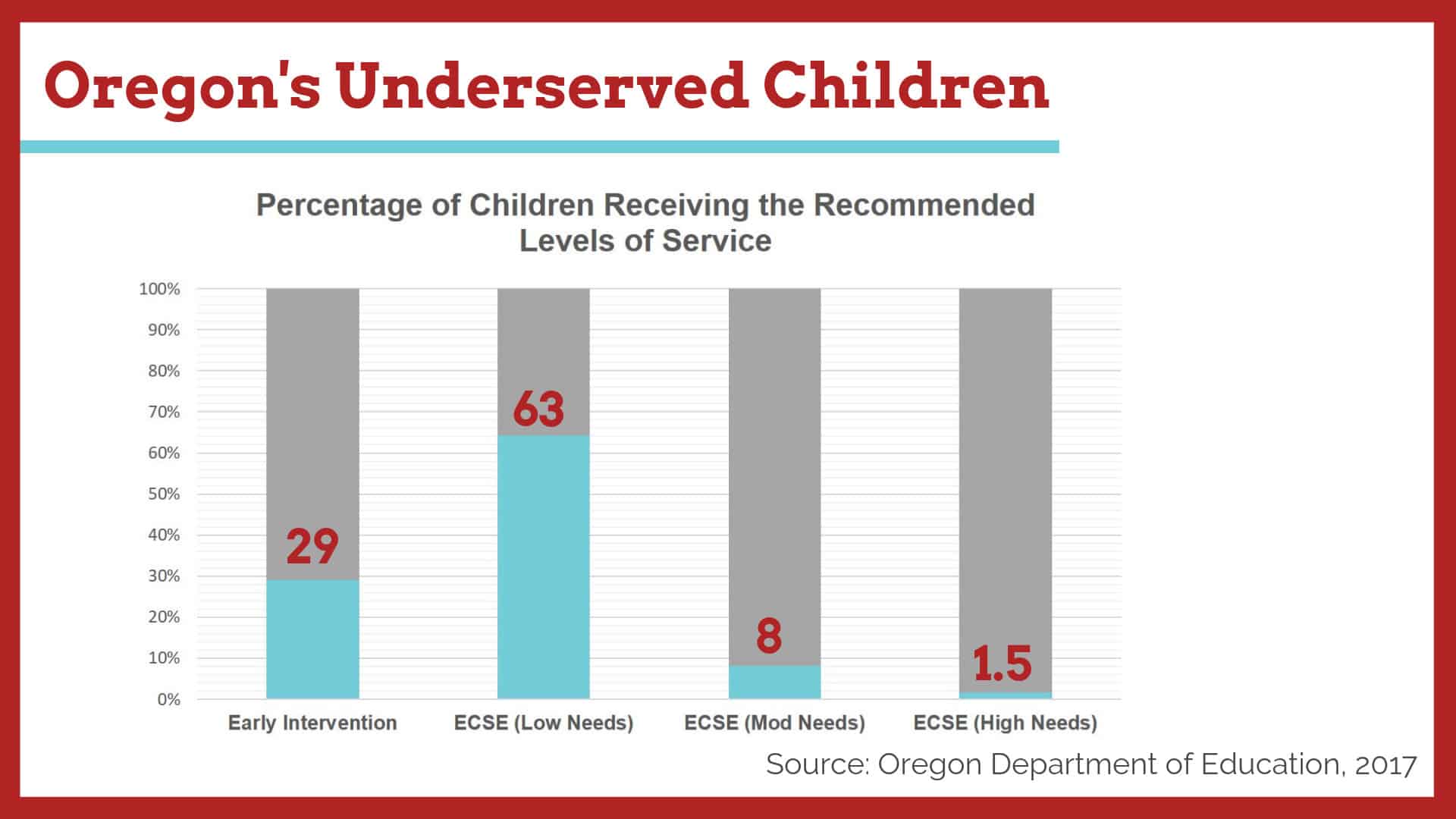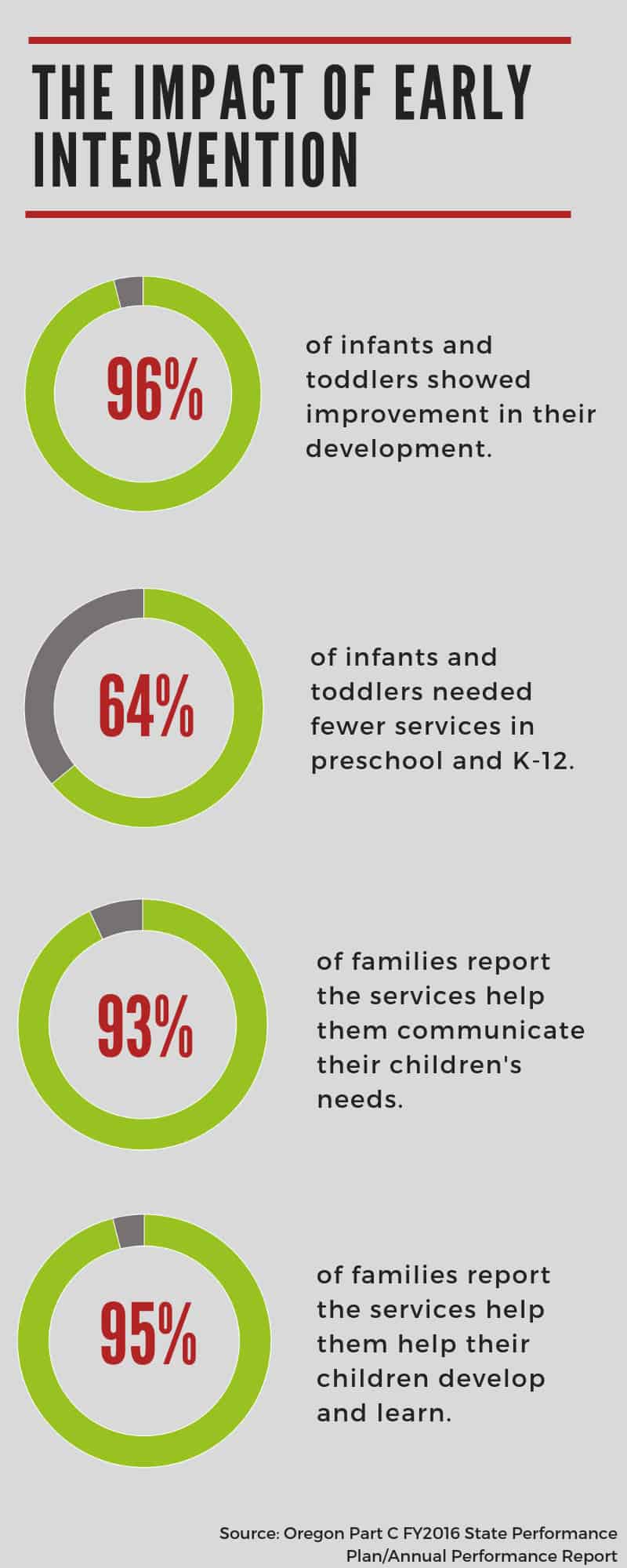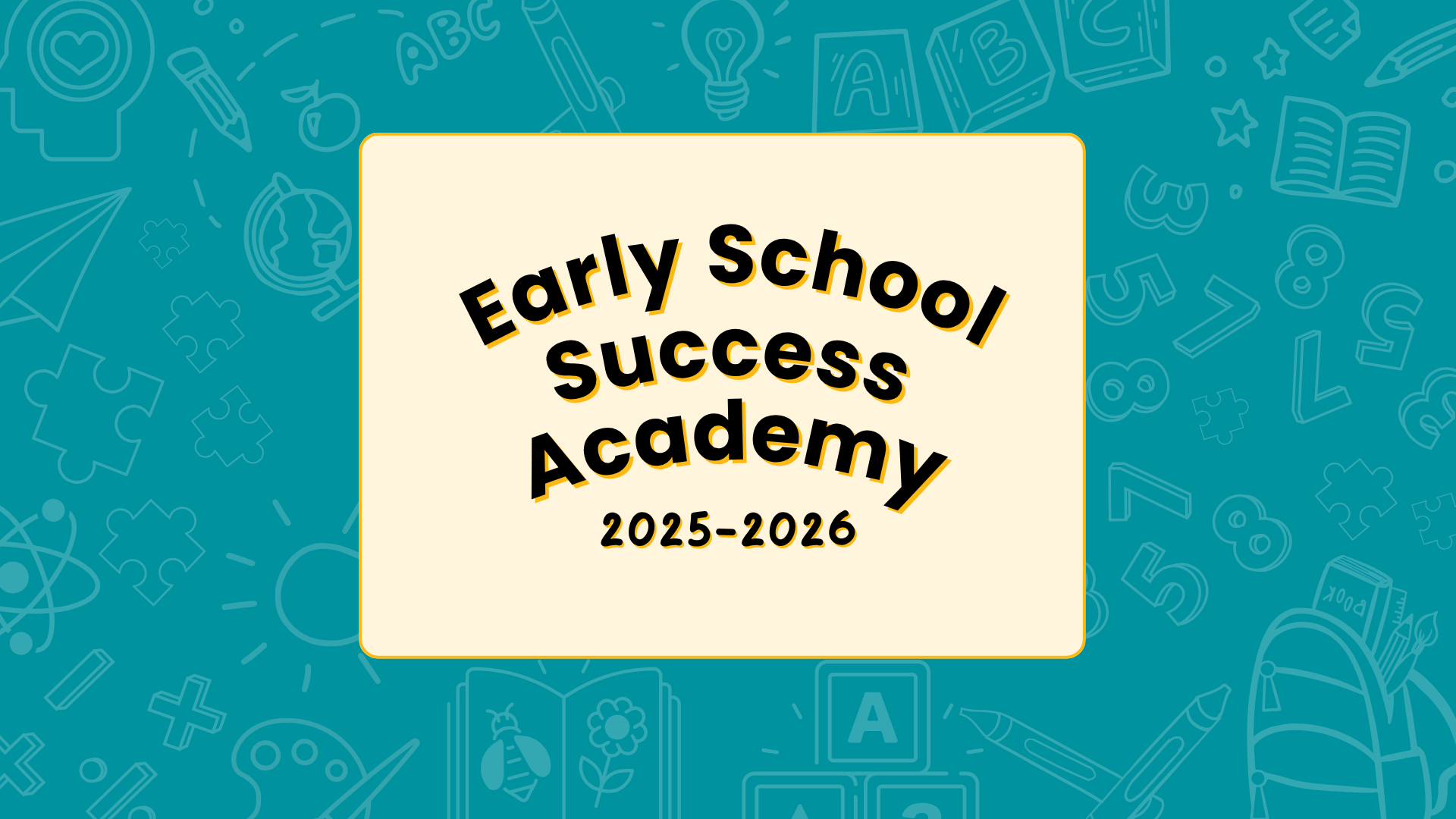While Oregon has prioritized developmental screenings for young children, the state does not invest enough in the Early Intervention (EI) and Early Childhood Special Education (ECSE) children need once they are diagnosed with disabilities and delays. As a result, more children are referred for EI/ECSE, but most receive less than the recommended levels of service.
We spoke with Roberta Dunn, executive director of FACT Oregon, to learn more about the experiences of young children with disabilities seeking services and the need for increased investments from the state to fund the supports proven to enhance the physical, cognitive, and social-emotional development of children diagnosed with developmental disabilities and/or delays.

Children’s Institute: Can you tell our readers about the work FACT Oregon does, specifically with families of young children?
Roberta Dunn: FACT Oregon is the only statewide, cross-disability, family-led organization providing information, training, and support to families experiencing disability, birth through adulthood.
FACT exists to empower families in the pursuit of whole lives for their children who experience disability. It’s our mission and it’s also our passion. All our out-facing staff members are parents raising a child experiencing disability; all of us experienced the day that we received diagnosis, and we can relate to what that felt like. We work to let families know as early as possible that disability doesn’t have to define you. I like to say that it’s like salt and pepper, in that it seasons you, but it doesn’t define you.
FACT is funded by the Oregon Department of Education and the US Department of Education to serve as Oregon’s parent training and information center. So, if a family calls in—and they could be asking us anything from how to get a child to sleep through the night, toileting, teething, all the way through to transitions into adulthood—we’ll be able to find someone who can talk to them within our staff or the families we’re connected with.
We also offer a series of online trainings that specifically targets families with young children. The first training introduces families to person-first language and strengths-based thinking about disability. The second module introduces the importance of having a vision for the future and pursuing opportunities such as early intervention and early childhood special education (EI/ECSE) or community programming. The third focuses on the importance of telling your story—how powerful a family’s experiences can be for legislative advocacy, the school board, or funding for a local program. The final module is a transition to kindergarten training, making sure the family understands disability and how to optimize the availability of EI/ECSE, and then is prepared for their IEP [individual education plan] meeting and transition to kindergarten.

Early Intervention (EI) serves children ages birth to 3 with diagnosed developmental delays and disabilities, or medical conditions likely to result in developmental delays. Early Childhood Special Education (ECSE) serves children ages 3 to school age with developmental delays and/or disabilities.
CI: What’s the biggest challenge facing families in Oregon with young children with disabilities?
Roberta Dunn: Poor funding for EI/ECSE. My son who experiences disability is going to be 26 in November. The level of investment that we were making as a country in early intervention when he was a child was so much higher than what we’re investing now. I would argue that my access to a more robust early intervention system supported me to become the advocate that I am, and a parent who could be my son’s number one fan. I think that that’s one of the things our families aren’t getting right now in early intervention. Early intervention now, from the families that I speak with, is sometimes seen as a little bit more of an annoyance, because it’s so little and not meaningful, and so it just becomes one more thing they have to put on their calendar.

An additional investment of $75.8 million dollars per biennium from the state of Oregon will allow all 14,000 children served by EI/ECSE to receive the recommended levels of service, which would reduce the number of children needing services in preschool and K–12.
I’m very optimistic, though, because we have more and more school districts and ECSE programs that are doing great work, that are being innovative, that are doing the best they can with the meager amounts they’re funded. Hopefully what we’ll see is the intersection of that innovation with adequate funding.
CI: Can you explain the importance of connecting parents with others whose children have similar disabilities?
Roberta Dunn: When parents meet young adults who experience disability in a similar way as their toddler, all of a sudden they say, “Wait a minute—whole lives are possible.” That’s what happened to me. I had opportunities to go to different trainings as a part of my connection in our early intervention community, and as a result met adults who experience disability in the way my son does. They were working, they were having relationships, and they lived out in the community. That helped me to establish what I considered to be my north star. All the decisions I made from that point were based on that north star.
If a family doesn’t get that opportunity to have someone inspire them to dream a bigger dream, they aren’t prepared to optimize what the Individuals with Disabilities Education Act (IDEA) makes available for students for special education in school. As a result, a disengaged and somewhat disenfranchised parent arrives at that IEP meeting not understanding their incredibly important role on that team. If a mediocre IEP is the result of that IEP meeting, it’s still very much the free appropriate public education as outlined in the law, but the parent didn’t know it could be more.
More than 27 percent of preschool children participating in ECSE enter kindergarten without the need for Special Education.

Additional Resources
Early Intervention and Early Childhood Special Education in Oregon, Children’s Institute
Assessment and Evaluation, Oregon Center for Children and Youth with Special Health Needs
Inclusive Child Care, Inclusive Partners
FACT’s IEP and Complaint Toolkits, FACT Oregon

